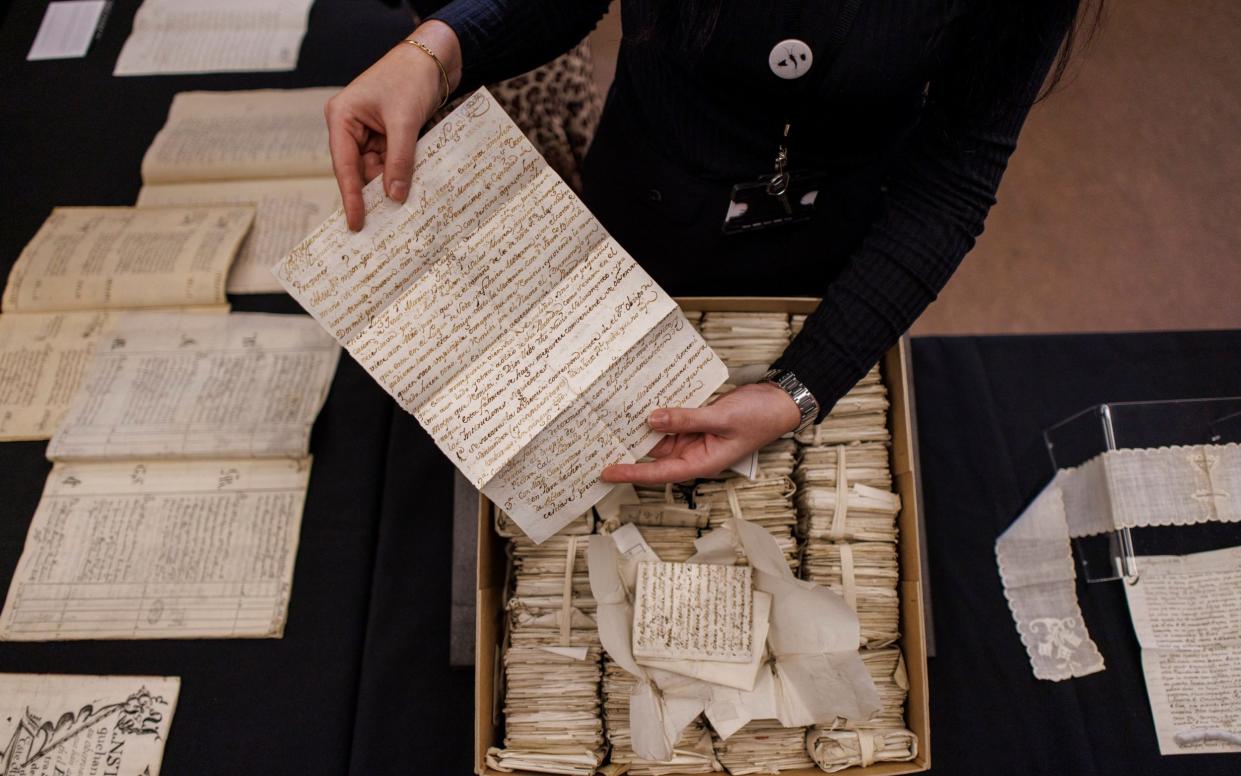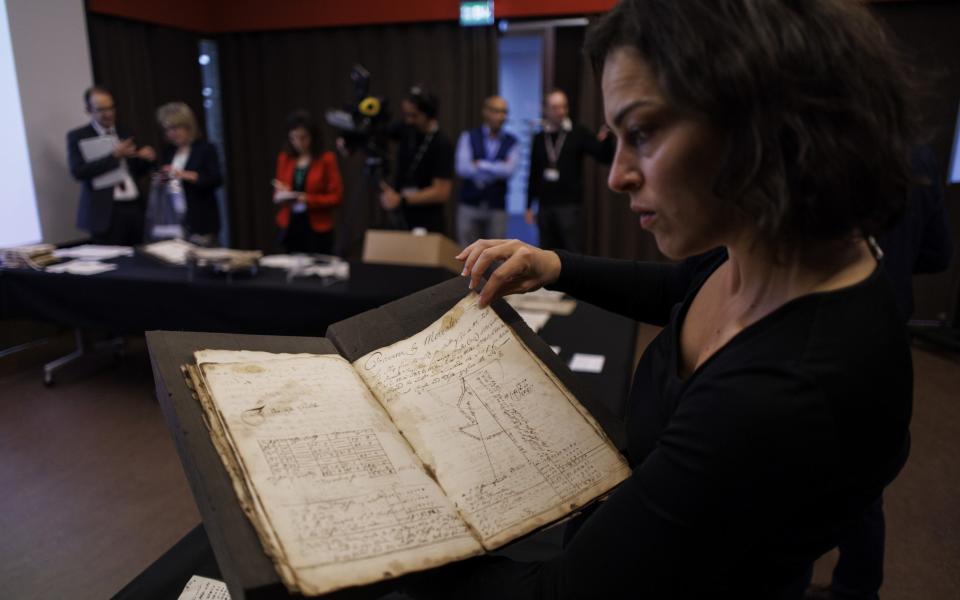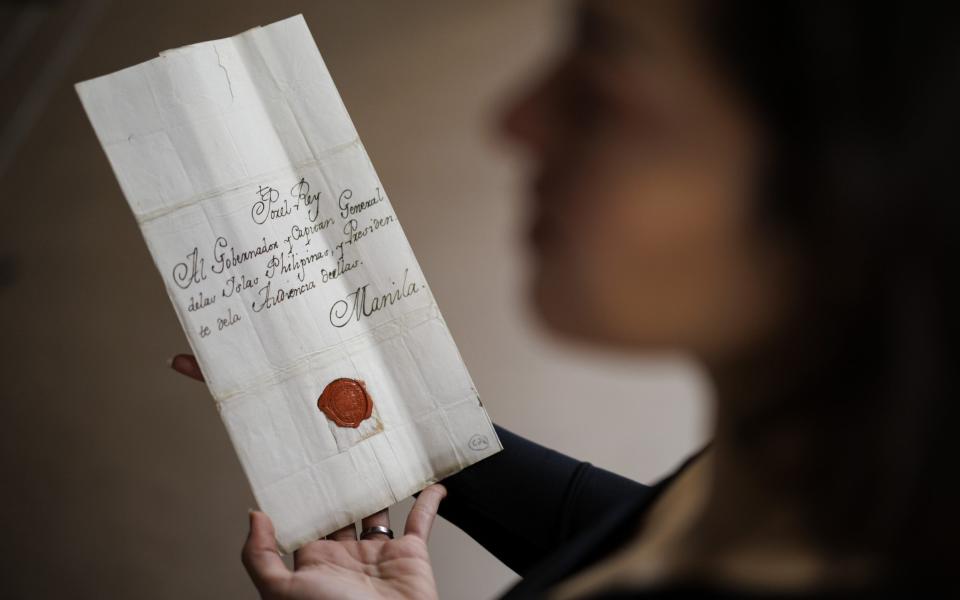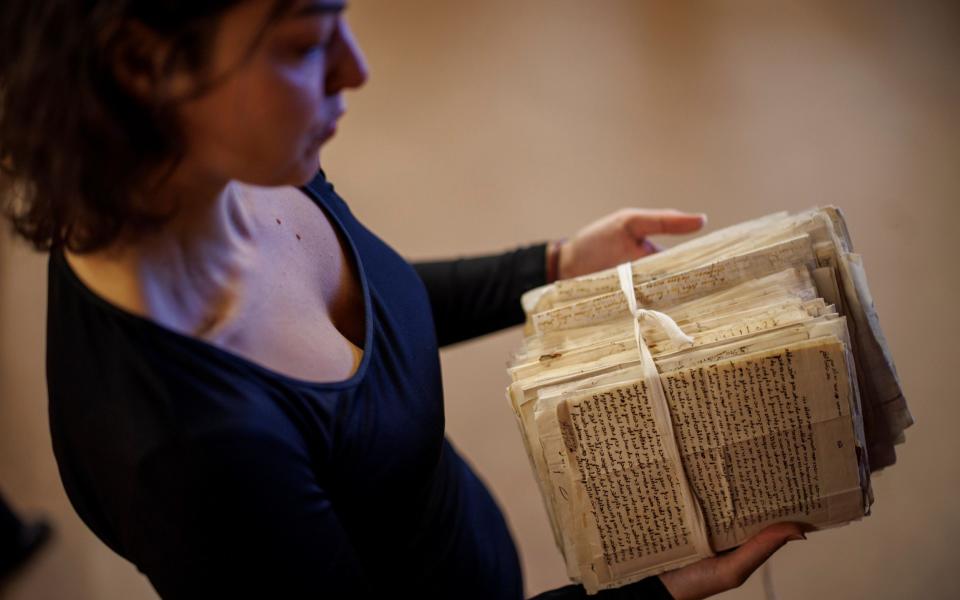Spanish wife berates absent husband in newly discovered 18th-century letter

Anyone on a long business trip away from home can expect regular complaints from their spouse if they fail to keep in touch.
But a recently discovered letter from an 18th-century Spanish woman, berating her husband in the New World for failing to respond to her pleas for help, shows that perhaps little has changed in the past 300 years.
The letter from Francisca Muñoz to Miguel Atocha is part of a treasure trove of documents seized by the Royal Navy and British privateers from Spanish ships during the War of Jenkins’ Ear (1739–48) and the War of the Austrian Succession (1740–48).
In the letter, published online on Thursday as part of the National Archives’ Prize Papers Project, Muñoz berates Atocha for not responding to her previous 13 missives and wonders sarcastically whether “perhaps over there is no paper or pen or ink not to have written even a letter”.

She goes on to tell her husband that since he left for the Americas she and their two children have been living in penury, with their daughter Maria at one stage forced to work as a servant girl and their son – who is growing increasingly rebellious – unable to attend church for lack of decent clothing.
Writing from her home in Seville on January 12 1747, Muñoz states: “Your daughter María was serving [working as a domestic servant], which gave me some relief, but God took even that away from me, because shortly after she started working in the house, the doctor recommended me to take her out, because she could get ill.”
Beseeching Atocha to send assistance, Muñoz adds: “Your son needs someone who will lend him a cloak to go out to Mass.”
In one passage, she tells her husband: “Me, with my many illnesses, couldn’t do much, because since you left this land I haven’t enjoyed good health,” adding: “I am stiff and starving, there are days in which I don’t even taste water because I have no place here to take it from, and I am so ill that I cannot even go out to beg door to door.”

Worse still, Muñoz tells Atocha that after marrying a nice lad “without vice, that doesn’t drink or play cards or have bad company”, Maria gave birth to a boy who died after just 14 months.
The letter was among documents seized when the Spanish transatlantic trade ship La Ninfa was captured by the British “Royal Family” privateer squadron, along with hundreds of other similar correspondence from people in Spain to their families in Mexico.
Such documents were generally presented to the High Court of the Admiralty as proof that a ship had been captured by a British crew, as part of their claim to be legally entitled to all the goods on board.
Between 1652 and 1815, British privateers and naval vessels captured around 35,000 ships, from which they seized hundreds of thousands of papers that historians have only recently begun to document as part of the Prize Papers project.
The archive includes 160,000 letters written in over 20 languages, as well as the personal archives of passengers and business contracts between traders in Europe and the New World.

Among them is an analysis of relations between the European superpowers of the day, with the writer, one Juan Franchois, hoping for success by the Scottish Jacobites in their rebellion against the British crown and correctly predicting that the marriage of Spain’s Princess Maria Antonia Fernanda to Victor Amadeus of Savoy would strengthen ties between Spain and the Kingdom of Sardinia.
There are also letters between Sephardic Jews in Holland and Morocco recounting details of their daily lives and the tribulations of hunger and war.
The University of Oldenburg in Germany and the UK National Archives are in the process of digitising the entire Prize Papers collection in order to make it available online in an open access database.
Dr Dagmar Freist, a professor at the University of Oldenburg, the director of the 20 year project, said: “The Prize Papers are crucial for our understanding of early globalisation and colonialism. A lot of these letters talk about what it means to migrate, to go somewhere where you don’t know anyone and don’t understand the customs. They give a fascinating insight into how Europeans coped with this new world around them.”
José Pascual Marco, the Spanish ambassador to the UK, said that for modern Spaniards the letters provided a moving account of their ancestors’ early encounters with the newly discovered Americas which should be viewed without the hindsight of modern attitudes.
He said: “We sometimes have too quick a judgmental and moral view of the world, when in fact we have to understand it and its complexities and that is what we have in these papers from the age of discovery and empire.”

